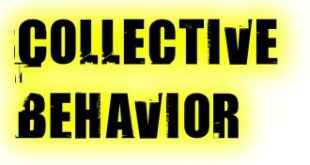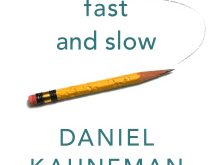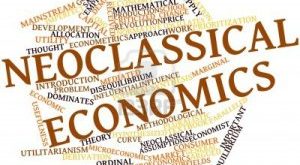To all who argued the financial world would’ve collapsed without the bailouts: The political world is collapsing now because of the bailouts — Emanuel Derman (@EmanuelDerman) June 25, 2016 The bigger picture of the early 21st century follows: Western nations experienced a massive blowout bubble of leverage, irrational exuberance, and Hayekian pseudo-money creation. Yet this money was not going to overwhelmingly productive causes. The real output of the Western world did not follow...
Read More »The need for a new economics curriculum without the present suicidal formalism
The need for a new economics curriculum without the present suicidal formalism When the global economy crashed in 2008, the list of culprits was long, including dozy regulators, greedy bankers and feckless subprime borrowers. Now the dismal science itself is in the dock, with much soul-searching over why economists failed to predict the financial crisis. One of the outcomes of this debate is that economics students are demanding the reform of a curriculum...
Read More »Mathematics and statistics do not solve our disagreements
Mathematics and statistics do not solve our disagreements Statistical Science is not really very helpful for understanding or forecasting complex evolving self-healing organic ambiguous social systems – economies, in other words. A statistician may have done the programming, but when you press a button on a computer keyboard and ask the computer to find some good patterns, better get clear a sad fact: computers do not think. They do exactly what the...
Read More »Hur stora klyftor tål Sverige?
Hur stora klyftor tål Sverige? Malmö högskola arrangerar Bildningsbaren #3 – ett samtal om ekonomi och ojämlikhet Det talas allt mer om växande ekonomiska klyftor. De i toppen drar iväg från de i botten. Från att ha varit världshistoriens jämlikaste land har Sverige snabbt närmat sig genomsnittet inom OECD – ett genomsnitt där klyftorna också har ökat. I Bildningsbaren #3 pratar vi om de ekonomiska klyftorna och ojämlikhet i dagens Sverige. Sara Granér,...
Read More »The economics of stochastic Robinson Crusoes
The economics of stochastic Robinson Crusoes The increasing ascendancy of real business cycle theories of various stripes, with their common view that the economy is best modeled as a floating Walrasian equilibrium, buffeted by productivity shocks, is indicative of the depths of the divisions separating academic macroeconomists … If these theories are correct, they imply that the macroeconomics developed in the wake of the Keynesian Revolution is well...
Read More »Why should economics demand what harder sciences do not?
Why should economics demand what harder sciences do not? Although economics main concern is with aggregates, there has predominated in the discipline an atomistic approach. If you want to know what consumers do, you model the individual consumer behavior and assume it represents the behavior of the typical consumer. The same applies to producers: the theory of the firm is the basis for the aggregate supply function. Moreover, it has been proposed that the...
Read More »Intuitive, appealing, and — wrong
Intuitive, appealing, and — wrong One of the main functions of System 2 is to monitor and control thoughts and actions “suggested” by System 1 … For an example, here is a simple puzzle. Do not try to solve it but listen to your intuition: A bat and ball cost $1.10. The bat costs one dollar more than the ball. How much does the ball cost? A number came to your mind. The number, of course, is 10: 10 cents. The distinctive mark of this easy puzzle is that it...
Read More »What is wrong with neoclassical economics?
What is wrong with neoclassical economics? Noah Smith writes that when yours truly and other heterodox economists criticize neoclassical economics the term “neoclassical” gets slung around quite a lot, usually as a perjorative (sic!) … The idea is that “neoclassical” econ is the dominant paradigm, and that the “heterodox” schools are competing paradigms that lost out, and were, to use Kuhn’s terminology, “simply read out of the profession…and subsequently...
Read More »Teaching economics — a question of waste and harm
Teaching economics — a question of waste and harm Amos Tversky once told me about a meeting he had attended with the foremost psychological scholars in the U.S., including Leon Festinger. At one point they were all asked to identify what they saw as the most important current problem in psychology. Festinger’s answer was: “Excessive ambitions”. In this paper I argue that this is not just the case for psychology, but for the social sciences across the board...
Read More »Vampire economics
Economics — in contradistinction to logic and mathematics — ought to be an empirical science, and empirical testing of ‘axioms’ ought to be self-evidently relevant for such a discipline. For although the economist himself (implicitly) claims that his axiom is universally accepted as true and in now need of proof, that is in no way a justified reason for the rest of us to simpliciter accept the claim. When applying deductivist thinking to economics, neoclassical economists...
Read More » Heterodox
Heterodox









